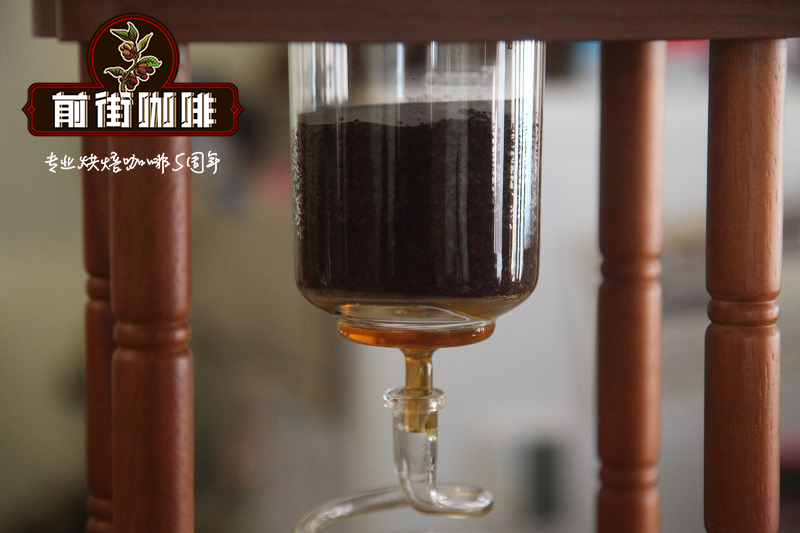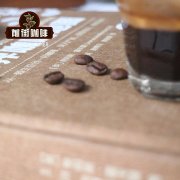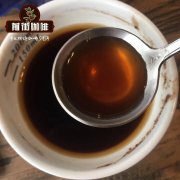Costa Rica Blanca Manor Black Honey Coffee hand-made parameters sharing _ COE Award-winning Manor introduction

Professional coffee knowledge exchange more coffee bean information please follow the coffee workshop (Wechat official account cafe_style)
Origin: Costa Rica
Manor: Blanca Rivas disposal site Treasure Manor
Award record: 2015 COE award winning manor
Variety: Kaduai
Treatment: black honey treatment
Flavor: BlackBerry, sweet spices, honey, peach, round taste, rich sweet and sour taste
Costa Rica
Costa Rica
Costa Rican coffee has a history of more than 200 years and plays an indispensable role in the global coffee history. In the past ten years, it is popular all over the world as a micro-processing plant, and it has created a variety of boutique coffee because of its special geographical environment.
Costa Rica introduced coffee from Cuba in 1729, and the varieties are mainly Kaddura and Kaduai, and its national law only allows the cultivation of Arabica coffee, which is very rare in coffee plantations all over the world. it shows that full attention is paid to the quality of coffee.
Because Costa Rica is located in the volcanic belt, the fertile and well-drained volcanic soil provides sufficient nutrients for coffee to grow. Costa Rican beans are graded according to altitude, which is due to the low temperature at night at high altitude, which makes the trees grow slowly, which makes the flavor of coffee more rich; in addition, because the drop at high altitude can cause sufficient rainfall, it is also very beneficial to the growth of coffee.
Blanca Rivas people deal with the treasure manor.
Brunca Finca La Guaca
In 1990, Mr. R é gulo Gerardo Ure ñ a Chac ó n established a treasure manor in the beautiful Brunca area. The estate covers an area of 10 hectares and is about 1600 meters above sea level, of which 5 hectares are planted with coffee and the remaining 5 hectares are used as protected areas. A large number of native tree species are preserved in the garden, and many fruit trees are planted, which can not only increase economic benefits, but also help birds and other animals survive. Mr. R é gulo, a big parent of the manor, believes that biodiversity can not only bring sustainable development to the land, but also add natural flavor to coffee.
The name of the manor is "Treasure". It is said that the local aborigines buried a number of treasures in this site a long time ago, but they have not yet been found, so they are named after them, with a touch of mystery and cultural significance connected with the place. The estate is owned by the Mr. R é gulo family and has its own "Rivas" micro-processing plant.
Before 2015, after the harvest at the beginning of each year, it was difficult to find discerning buyers and were willing to buy these excellent beans at a reasonable price. But instead of being depressed, Mr. R é gulo continued to refine his farming methods and treatments and began to participate in the COE competition in Costa Rica. From being able to make it through the first round of the domestic selection, and then to winning by only one person in the international selection in 2014, finally, it won the 33rd place in COE in 2015.
Buyers visited the manor alone in 2016, but in 2017 there were bustling foreign visitors from northern Europe, the United States, Canada and so on. Even the blue bottle coffee, the pioneer of the third wave of boutique coffee in the world, has also excavated this manor processing plant and expanded its purchase volume year by year.
Black honey treatment
Black Honey Process
The method of handling Costa Rican coffee is also different from that of other countries, and honey treatment is mainly used throughout the country. What is honey treatment?
The coffee bean is the core of the coffee fruit, the outermost layer of the fruit is the peel, under the skin is the pulp, and under the pulp is pectin, which is a thick gelatinous layer that tightly wraps the coffee beans. because this layer of mucous membrane is sticky and the sugar powder is extremely high, it is habitually called "honey".
Honey treatment refers to the process of making raw beans with mucous membrane for sun drying, which is between the sun treatment (whole fruit drying) and water washing (decomposing the colloid with water), which keeps the water clean, although the brightness decreases, but the sweetness of coffee has increased.
There is also a hierarchical distinction in honey treatment:
Yellow honey treatment: retain 20% of 50% pectin, dry with light, last for about 8 days, so that the moisture content reaches a stable value.
Red honey treatment: retain more than 50% of the pectin, longer drying time, reduce the direct exposure time of light, will be used in the sunshade, lasting about two weeks.
Black honey treatment: retain more than 80% pectin, about 2-3 weeks to dry dehydration, use sunshade, prevent drying too fast, so that coffee more fully absorb pectin converted sugar.
Why do other countries seldom use honey treatment? apart from the fact that the process is vulnerable to pollution and mildew, the whole process needs to be closely monitored and constantly flipped over to avoid bad fermentation flavor, but also depends on the local weather and climate. The weather must be dry and sufficient sunshine, otherwise it is not suitable for honey treatment. The climate of Costa Rica is rainy and dry for half a year, which happens to be dry during the coffee harvest season, so coffee farmers have summed up ways to treat honey.
Origin: Costa Rica
Manor: Blanca Rivas disposal site Treasure Manor
Award record: 2015 COE award winning manor
Variety: Kaduai
Treatment: black honey treatment
Flavor: BlackBerry, sweet spices, honey, peach, round taste, rich sweet and sour taste
Brewing Analysis of Costa Rican Coffee-Blanca Manor Black Honey Coffee
Hand punch reference
Use key home filter cup, 16 grams powder 32 grams of water steaming for 30 seconds, 89-90 degrees water temperature extraction, 1:15, fine grinding small Fuji 3.5 second water injection to 110ml cut off, wait for water drop and then slowly water injection, uniform speed, the water level should not be too high, again water injection to 233ml stop, extraction time 2:15 seconds-rich sour sweetness, we can fine-tune according to their own taste.
END
Important Notice :
前街咖啡 FrontStreet Coffee has moved to new addredd:
FrontStreet Coffee Address: 315,Donghua East Road,GuangZhou
Tel:020 38364473
- Prev

How to make White Honey Coffee in Rag Fairview Manor, Costa Rica
Professional coffee knowledge exchange more coffee bean information please follow the coffee workshop (Wechat official account cafe_style)-Costa Rican coffee beans introduction: elegant aroma, sending out a strong, mellow and attractive aroma. The bitter taste is soft, pure, smooth and mellow, with distinct fruit aromas in the finish. Coffee beans: Costa Rica-Tarazu (Costa Rica-Tarraz)
- Next

Costa Rican Raminita Coffee hand-made parameters Coffee Bean Flavor Story in Sanhe area
Professional coffee knowledge exchange more coffee bean information please follow the coffee workshop (Wechat official account cafe_style) Product name: Costa Rica Magnolia English: Costa Rica La Magnolia Grade: SHB Origin: Costa Rica production area: Sanhe area products: Laminita Manor treatment: washing and refining roasting degree: micro to moderate particle size: 16 mesh
Related
- Detailed explanation of Jadeite planting Land in Panamanian Jadeite Manor introduction to the grading system of Jadeite competitive bidding, Red bid, Green bid and Rose Summer
- Story of Coffee planting in Brenka region of Costa Rica Stonehenge Manor anaerobic heavy honey treatment of flavor mouth
- What's on the barrel of Blue Mountain Coffee beans?
- Can American coffee also pull flowers? How to use hot American style to pull out a good-looking pattern?
- Can you make a cold extract with coffee beans? What is the right proportion for cold-extracted coffee formula?
- Indonesian PWN Gold Mandrine Coffee Origin Features Flavor How to Chong? Mandolin coffee is American.
- A brief introduction to the flavor characteristics of Brazilian yellow bourbon coffee beans
- What is the effect of different water quality on the flavor of cold-extracted coffee? What kind of water is best for brewing coffee?
- Why do you think of Rose Summer whenever you mention Panamanian coffee?
- Introduction to the characteristics of authentic blue mountain coffee bean producing areas? What is the CIB Coffee Authority in Jamaica?

